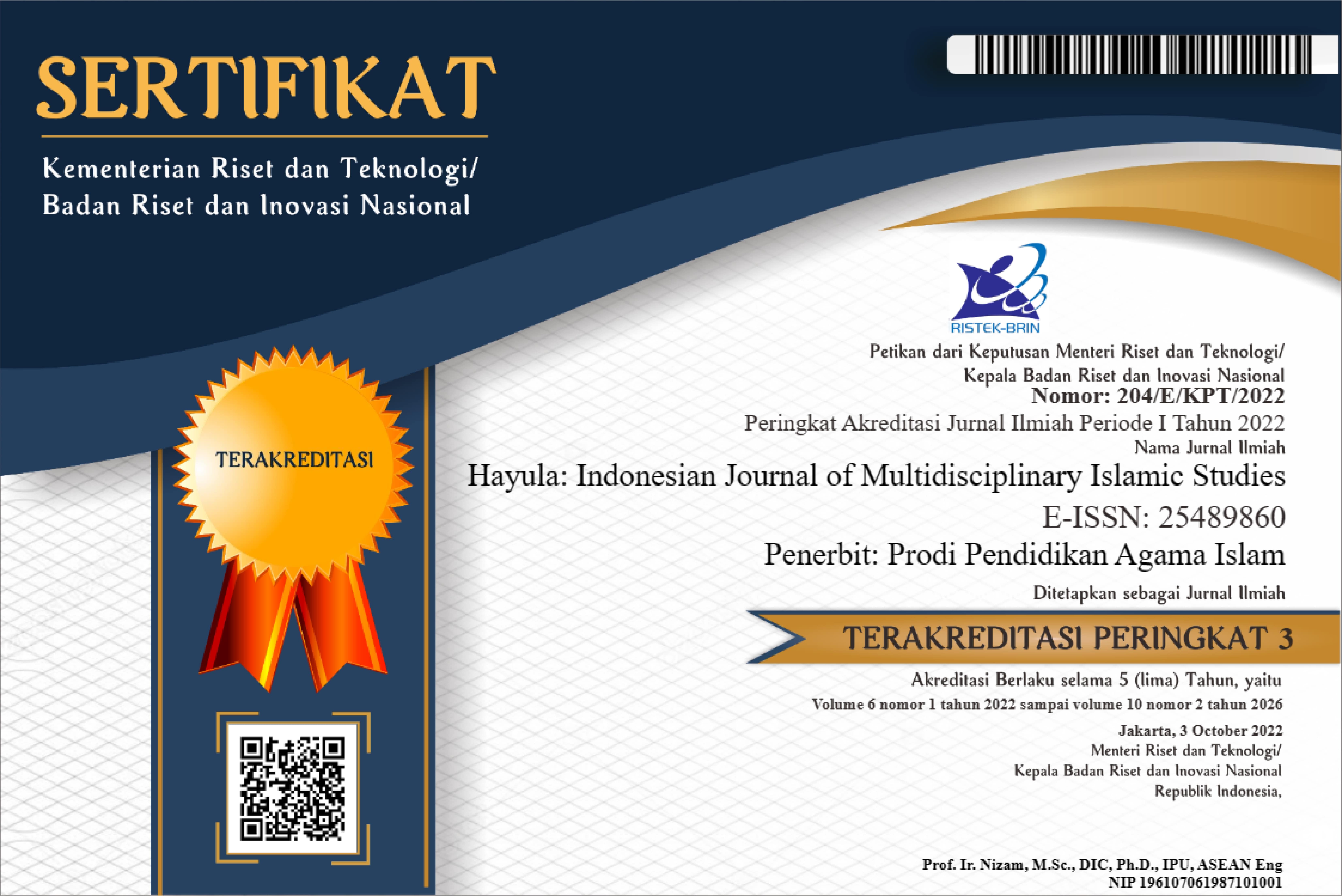The Strategy of the Nahdlatul Ulama in Maintaining Position and Legitimacy at the Indonesian Islamic Arena
DOI:
https://doi.org/10.21009/003.1.03Keywords:
Nahdlatul Ulama, Arena, Habitus, Capital.Abstract
This article aims to analyze NU strategy in maintaining the arena of moderate Islam in Indonesia. this strategy was used by NU to anticipate the radical movement intending to seize the Indonesian Islamic arena. This is because NU has legitimacy as a moderate organization in Indonesia. This study uses observational studies by looking at the historicity of NU as a religious organization and its role in the Indonesian Islamic arena. This study uses the theory of genetic structuralism which includes habitus, arena, capital, trajectory, and strategy. The results of this study indicate that NU basically has the capital to maintain the arena of moderate Islam in Indonesia. The accumulation of capital is then at stake with two strategies, that efforts to maintain and widen the arena of power in Islam in Indonesia has a great opportunity.
References
Bourdieu, P. (1990). In Other Words: Essays Towards a Reflexive Sociology. Stanford University Press.
Bourdieu, P. (2010). Arena Produksi Kultural: Sebuah Kajian Sosiologi Budaya.
Bruinessen, M. van. (1994). NU: tradisi relasi kuasa pencarian wacana baru. Yogyakarta: LKIS.
Darajat, Z. (2017). Muhammadiyah dan NU: Penjaga Moderatisme Islam di Indonesia. Hayula: Indonesian Journal of Multidisciplinary Islamic Studies, 1(1), 79–94. https://doi.org/https://doi.org/10.21009/hayula.001.1.05
Fauzi, F. (2014). Pierre Bourdieu: menyingkap kuasa simbol. Yogyakarta: Jalasutra. http://opac.library.um.ac.id/oaipmh/../index.php?s_data=bp_buku&s_field=0&mod=b&cat=3&id=57027
Fealy, G., & Barton, G. (2010). Tradisionalisme radikal: persinggungan Nahdlatul Ulama-negara. Yogyakarta: LKiS.
Feillard, A. (1999). NU vis a vis Negara ; Pencarian Isi, Bentuk dan Makna. Lkis Pelangi Aksara.
Fowler, B. (2009). The obituary as collective memory. New York: Routledge.
Grenfell, M., & Ebrary, I. (2010). Pierre Bourdieu key concepts. Acumen.
Harker, R. (2009). Cheelen Mahar dan Chris Wilkes,(Habitus x Modal)+ Ranah= Praktik: Pengantar Paling Komprehensif kepada Pemikiran Pierre Bourdieu, terj.
Hikam, M. A. S., Ridwan, M., & Hairus Salim H. S. (1999). Kultur Hibrida: Anak Muda NU di jalur kultural. Yogyakarta: LKiS.
Humaidi, Z. (2010). Islam dan Pancasila: Pergulatan Islam dan Negara Periode Kebijakan Asas Tunggal. Kontekstualita: Jurnal Penelitian Sosial Keagamaan, 25(2).
Ismail, F. (2002). Pijar-pijar Islam: pergumulan kultur dan struktur. Yogyakarta: LESFI.
Ismail Hasani, & Naipospos, B. T. (2012). Dari radikasme menuju terorisme: studi relasi dan tranformasi organisasi Islam radikal di Jawa Tengah dan di Yogyakarta. Jakarta: Pustaka Masyarakat Setara.
Jati, W. R. (2015). Islam Populer sebagai Pencarian Identitas Muslim Kelas Menengah Indonesia. Teosofi: Jurnal Tasawuf Dan Pemikiran Islam, 5(1), 139–163.
Karnanta, K. Y. (2013). Paradigma Teori Arena Produksi Kultural Sastra: Kajian Terhadap Pemikiran Pierre Bourdieu. POETIKA: Jurnal Ilmu Sastra, 1(1).
Kersten, C. (2016). Islam in Indonesia: the contest for society, ideas and values.
Nashir, H. (2013). Islam syariat: reproduksi Salafiyah ideologis di Indonesia. Maarif Institute.
Richardson, J. G. (1986). Handbook of Theory and Research for the Sociology of Education. Greenwood Publishing Group.
Ritzer, G., & Goodman, D. J. (2012). Teori Sosiologi Dari Teori Sosiologi Klasik Sampai Perkembangan Mutakhir Teori Sosial Postmodern.
Wahid, A. (2009). Ilusi negara Islam: ekspansi gerakan Islam transnasional di Indonesia. Jakarta: Wahid Institute.
Downloads
Published
How to Cite
Issue
Section
License
Authors who publish with this Journal agree to the following terms:
- Author retain copyright and grant the journal right of first publication with the work simultaneously licensed under a creative commons attribution licensethat allow others to share the work within an acknowledgement of the work’s authorship and initial publication of this journal.
- Authors are able to enter into separate, additional contractual arrangementfor the non-exclusive distribution of the journal’s published version of the work (e.g. acknowledgement of its initial publication in this journal).
- Authors are permitted and encouraged to post their work online(e.g. in institutional repositories or on their websites) prior to and during the submission process, as it can lead to productive exchanges, as well as earlier and greater citation of published works.
Users/public use of this website will be licensed to CC BY






